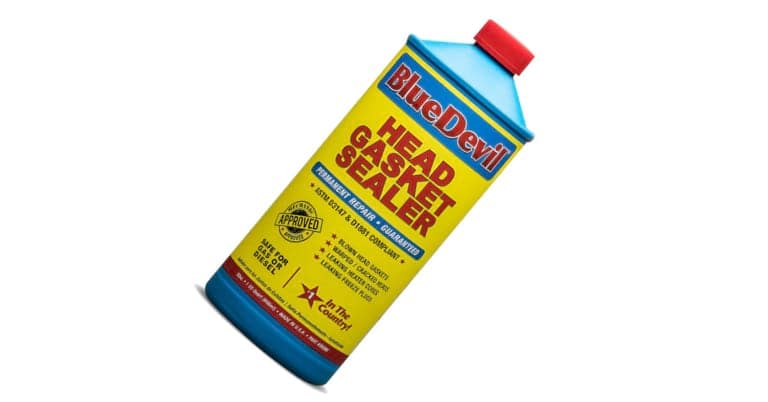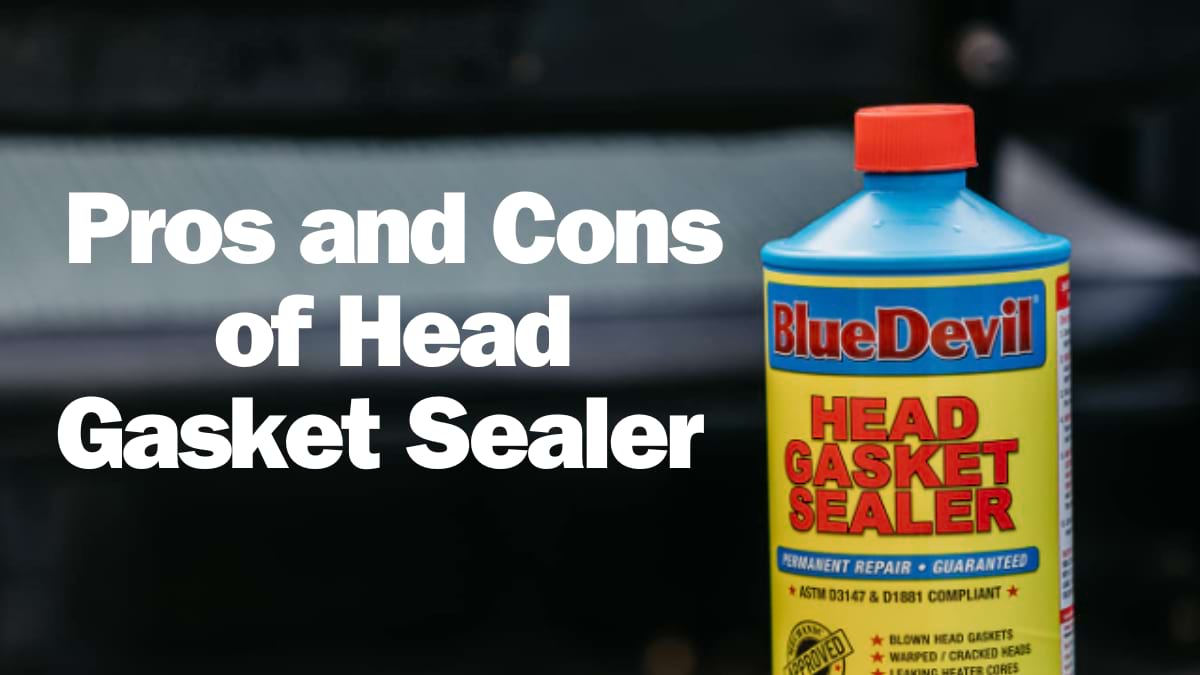Hi there, what’s up? Do you use head gasket sealer? If you use it then this content is helpful for you. Because here I will discuss the pros and cons of head gasket sealer. So, let’s find out the pros and cons.
Pros and Cons of Head Gasket Sealer

Using a head gasket sealer can be a temporary fix for minor head gasket leaks, but it’s important to weigh the pros and cons before deciding whether to use one:
Pros of Head Gasket Sealer:
- Cost-effective: Head gasket sealers are generally much cheaper than a full head gasket replacement, making them an attractive option for those on a tight budget.
- Convenience: Applying a head gasket sealer is usually a relatively simple process that can be done at home with basic tools, avoiding the need for expensive professional repairs.
- Temporary solution: In some cases, a head gasket sealer can effectively seal minor leaks and extend the life of the head gasket, allowing you to postpone more costly repairs.
- Widely available: Head gasket sealers are readily available at auto parts stores and online, making them easily accessible to vehicle owners.
Cons of Head Gasket Sealer:
- Temporary fix: Head gasket sealers are not a permanent solution to a damaged head gasket. While they may temporarily stop leaks, they are unlikely to completely repair the underlying issue, and the leak may reoccur over time.
- Limited effectiveness: Head gasket sealers are most effective for minor leaks in certain parts of the gasket. They may not work as well for larger leaks or leaks in certain areas of the gasket, such as between cylinders.
- Potential for clogging: Some head gasket sealers contain particles or additives that can clog the cooling system or other components of the engine if not used correctly or if too much sealer is applied.
- Risk of damage: Using a head gasket sealer carries a risk of causing damage to the engine if not used properly. For example, if the sealer is applied incorrectly or if it reacts negatively with other chemicals in the cooling system, it could lead to further problems.
- Masking underlying issues: While a head gasket sealer may temporarily stop leaks, it does not address the root cause of the problem. Delaying proper repairs could lead to more extensive damage to the engine over time.
How To Install Head Gasket Sealer? Easy Installation
How long do head gaskets last?
On average, a head gasket can last anywhere from 100,000 to 200,000 miles or more. However, they can wear out sooner if there are issues like overheating, coolant leaks, or poor maintenance.
Does Head Gasket Sealer Work?
Head gasket sealers can sometimes work to temporarily stop minor leaks in the head gasket of a car’s engine. They’re like a quick fix that can buy you some time before needing a more permanent repair.
But there are some things to keep in mind:
- They’re temporary: The seal created by the sealer is usually not permanent. It might hold for a few weeks or months, but eventually, the leak could come back.
- They’re not for big problems: If your head gasket has a major leak or if it’s damaged badly, a sealer might not be enough to fix it. You might need a more extensive repair.
- They can cause issues: Sometimes, the particles in the sealer can clog up your cooling system or cause other problems if not used correctly.

